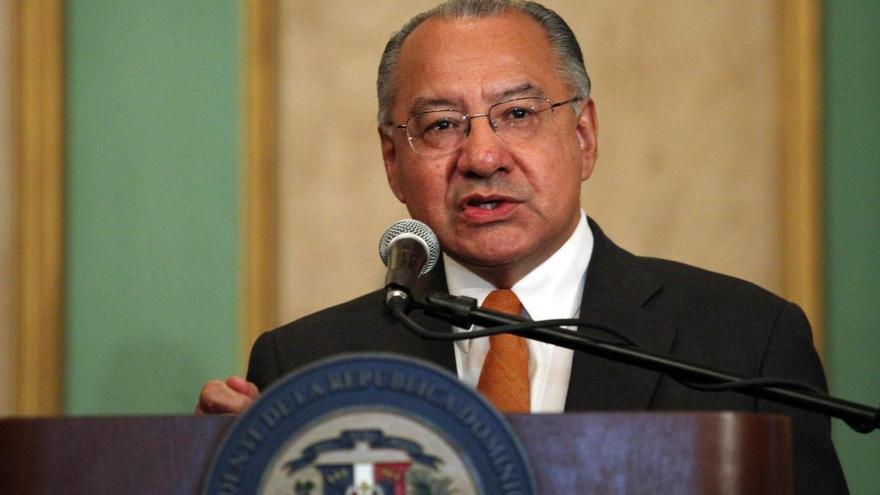Miami These days it is preparing to become the world epicenter of the art business due to the celebration of the Art Basel fair, but while artists, gallery owners, buyers and celebrities arrive, the city confirms itself as the central nucleus on another map: e of the intrigues, betrayals and espionage that mark the history of the complex relations of the United States with Cuba.
The latest incident that underlines this capital role has been the arrest and indictment in the south Florida city of Victor Manuel Rocha, a retired diplomat USA of 73 yearswhich became part of the National Security Council, be ambassador to Bolivia and advise the US military and whom the Department of Justice has accused of having been working more than 40 years as a clandestine agent for Havana and star, in the words of Attorney General Merrick Garland, “one of the US government infiltrations by a foreign agent longer range and longer duration”.
Rocha, who was born in Colombia but naturalized American in 1978 and only three years later he entered the State Department, was darrested on Friday by the FBI in Miami. This Monday, shortly before he appeared before a federal court in the city, Justice and the federal prosecutor’s office for the southern district of Florida have announced his imputation on several charges, including conspiring to workr promoting the interests of the Cuban government in the US without registering as a foreign agent.
According to authorities, Rocha had been working for Cuba from practically the moment he joined the State Department. And he continued to do so even after leaving public service in 2002 and moving into the private sector.
Fake and fake spies
His fall has come after a FBI undercover operation which started a year ago. Then the authorities received a “lead,” which has not been detailed, and an agent contacted the former diplomat, also posing as a Cuban espionage operative.
They started then three conversations between the spy and the agent who was posing as one, which were recorded. And in them Rocha performed numerous incriminating statements about his life of deception and his work for Havana.
Rocha told the agent who was posing as a spy how from the first moment he was under the orders of the General Intelligence Directorate Cuban (“the Directorate”), which asked him “to carry a normal life”. He also explained to her that she was moving forward “little by little” and defined his process of “very meticulous” and very disciplined”. He also assured that his work had had an effect. “What has been done has “Immensely reinforced the revolution”said.
Over the years it went through embassies like those of the US in Mexico and the Dominican Republic. Between 1994 and 1995 he served on the National Security Council and between 1995 and 1997 on the US Interest Bureau on the island. He then was at the embassy in Argentina before arriving in Bolivia as ambassador between 1999 and 2002. In those three decades, working for both Republican and Democratic administrations, he had access to classified information.
Later, despite leaving the diplomatic corps, he advised the US military in Southern Command, the division under which coverage among other countries of Cuba falls in the Pentagon’s organizational chart. And then he signed for several private sector companies. According to the Associated Press, she presided over a gold mine in the Dominican Republic, and held executive positions at several companies, including the Spanish public relations firm Llorente & Cuenca, Pennsylvania coal exporter XCoal, a law firm and a company seeking to facilitate mergers in the cannabis industry.
right-wing facade
Over the years Rocha cultivated an image of a right-wing person. When he was ambassador in La Paz, for example, he publicly warned Bolivians against the election of Evo Morales, warning that he could jeopardize future aid from Washington. And in recent years he had been publicly defending the figure and policies of donald trump.
In reality, according to Justicia, he was always committed to the cause of the Cuban communist revolution, he repeatedly praised Fidel Castro and in the recordings he spoke several times about USA as “the enemy”.
In one of the conversations with the agent who recorded him, and when he questioned whether he was still a “companion” of the Cuban cause, Rocha reacted angrily. “It is like question my manhood“, said. “I’m angry, pissed off, it’s like you want me to show you if I still have balls.”





